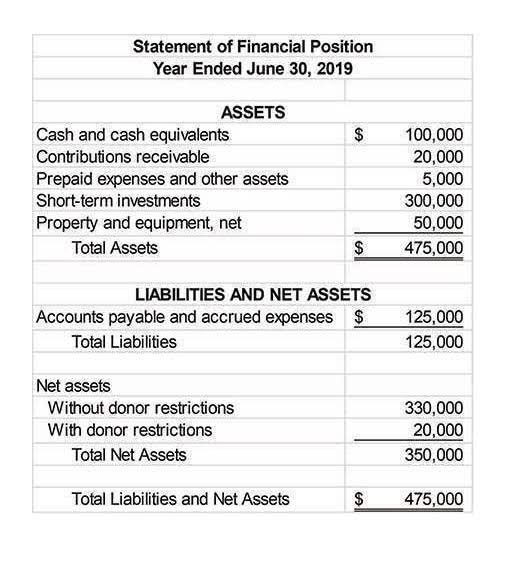
By adopting electronic invoicing, offering flexible payment options, and leveraging automation tools, you can build a process that supports your firm’s growth and financial stability. A powerful online legal billing and payments solution prevents you from deciding between doing client work right now or making sure you get paid for work already completed. Implementing a solution that automates accounts receivable processes minimizes the possibility of https://www.bookstime.com/articles/law-firm-accounts-receivable-management human error, such as inaccurate invoices, duplicate entries, and overpayment.

Preparing Your Law Firm for the January 31st 1099 Deadline

Using this technology will help you streamline tasks, reduce manual errors, and free up staff to focus on managing cases and clients. With an online payment service provider, it’s easy to monitor and manage A/R in real-time, without the paper what are retained earnings trail. These payment systems often include integrated platforms to communicate directly with clients and streamline into your firm’s workflow.

Growing Firms Need Accounts Receivable Automation

Delayed payments, mounting overhead, and the constant pursuit of outstanding invoices—these are the challenges that plague many law firms. Unpaid invoices not only disrupt the firm’s cash flow but also burden attorneys with the task of chasing payments, diverting their attention from their primary focus—practicing law. The term “accounts receivables” refers to money your law firm has earned and invoiced for but not yet received. Accounts receivables are listed as assets on law firms’ balance sheets. Trust accounting ensures that client funds are managed with integrity and compliance. These rules mandate that client funds be kept separate from the firm’s operating accounts to prevent commingling, which can lead to severe penalties and reputational damage.

Best Practices for Efficient Accounts Receivable Collections
- Implementing a comprehensive legal practice management solution can significantly enhance the efficiency of your law firm’s accounts receivable management.
- Managing accounts receivable is essential to maintaining the firm’s sustainability and success.
- A streamlined AR process can significantly transform the operations of a law firm.
- From there, you might escalate the frequency of telephoned requests for payment.
- From sending invoices electronically to setting up multiple payment options, we’ve seen various ways to improve your law firm’s accounts receivable process.
You’ve likely dealt with the headache of managing billing across multiple clients and services. Digital payments are also easy to schedule in advance, making it easy to set up future or recurring payments. Electronic invoices also help firms save costs, by eliminating time spent on preparing bills and reducing the use of paper and stamps. Accounts receivable automation is also hugely beneficial to maintaining good client relationships.
- Offer multiple payment options – checks, ACH, credit cards, online payments.
- It’s about striking a balance—sending invoices on time, making it easy for clients to pay, and following up efficiently on outstanding balances.
- Manually preparing and sending invoices is both tedious and time consuming.
- Hardworking attorneys invest huge amounts of time in their clients, pumping hours and hours into every case.
- This allows clients to instantly access billing information and send payments quickly and avoids issues like tracking down lost mail.
- To lay a solid groundwork for key internal improvements, it’s essential to learn how you can effectively collect accounts receivable.
States where Nacle.com Offers Live Interactive CLE Webinars:
- With just one click, you can send hundreds of invoices and receive payment directly on the same platform.
- A high ARM can harm the firm; thus, the latter is preferred as it ensures financial stability by ensuring full bill payment.
- The term “accounts receivables” refers to money your law firm has earned and invoiced for but not yet received.
- From there, the payments will process automatically, without hands-on intervention from you or the client.
- However, nearly every firm needs to address unpaid client bills at some point.
- Provide incentives for clients to pay invoices early, such as 5% off if paid within 15 days.
- Accounts receivable automation is also hugely beneficial to maintaining good client relationships.
You set the tone for collecting accounts receivable at your first meeting with a client. From there, you reinforce your payment expectations, either directly or indirectly, by communicating clearly Bookstime and consistently with your client. The best time to pitch clients on scheduling payments is during intake. You can have them sign payment authorization forms and set up the payment plan from the get-go.
Find the talent you need to grow your business
For example, if a firm has completed 60% of a litigation case, it can recognize 60% of the total agreed-upon fee as revenue. This approach aligns with the matching principle, which matches revenues with the expenses incurred to generate them, providing a clearer picture of a firm’s financial health. Revenue recognition in legal services requires a nuanced approach due to the unique nature of legal engagements. Unlike traditional businesses, where revenue is recognized upon the sale of goods, legal services often involve ongoing projects that can span months or years. This makes determining when and how to record revenue critical to accurately reflect work performed and value delivered to clients.
- With prompt follow-up on outstanding invoices, firms can reduce receipt times and improve operational efficiency.
- However, our report also uncovered that software adoption was key for solving common problems (like getting paid).
- Managing client retainers requires maintaining detailed records of all transactions, including deposits, withdrawals, and interest earned.
- A high stack of accounts receivable (AR) is bad for business as it impairs daily operations as well as the business’s scalability.
- Repeatedly following up on payments is tedious, takes time away from billable work, and can seriously impact your firm’s profitability.
Invoicing and accounts receivable is best managed on a regular and routine basis, which is why we facilitate ongoing communication and monthly checks with all our clients. As your firm continues to grow, continuous review of your internal process is key to scaling your business as efficiently as possible. Invoicing and accounts receivable encompasses all the details of your business’s cash flow.